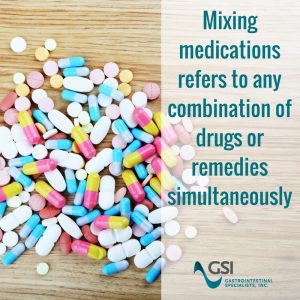News & Events
Herbal Medicine vs. Conventional Knowledge
Herbal Medicine vs. Conventional Knowledge
There is a common belief that herbal medicine is not harmful simply because they are natural and have existed for thousands of years. However, As with adding any new prescription to your regimen, it is impossible to foresee the outcome unless you are an objective and qualified medical professional.
What’s the difference between herbal medicines and more conventional medication?
Herbal medications do not have to be FDA approved. According to the Food and Drug Administration (FDA), any herbal remedies are in fact listed as “dietary supplements”. Therefore, herbal “medicines” actually have no official standings as such. These manufacturers and their products are not subject to the same rigor and qualifications as more conventional drugs. In fact, you will find the phrase “These statements have not been evaluated by the Food and Drug Administration. This product is not intended to diagnose, treat, cure, or prevent any disease” on the labels of most dietary supplements.
While conventional modern medicines may find their roots in herbal remedies—opium poppy for morphine, willow bark for aspirin, or digoxin from foxglove—the World Health Organization (WHO) defines herbal remedies as being only “herbs, herbal materials, herbal preparations and finished herbal products, that contain as active ingredients parts of plants, or other plant materials, or combinations.” In addition, the National Institute of Health (NIH) tells us that herbalists differ from conventional medicines in their use of whole plants, combination of herbs—in modern medicine, combining medications is avoided whenever possible, and vastly different methods of diagnoses.
What counts as mixing medications? Why is it bad? 
The term “mixing medications” refers to any combination of drugs or remedies simultaneously.
If you do not check with your doctor, you run the risk of negative reactions to mixed medication. For example, St. John’s Wort is an herb often used to alleviate depression; however, if you are already taking an antidepressant or other medication the St. John’s Wort could eradicate its effect and lead to potential harm or a more serious diagnosis.
Perhaps even more dangerous than this are herbs that will lessen or seriously increase the effect of another medication. The FDA provides a harrowing example: “Warfarin (a prescription blood thinner), ginkgo biloba (an herbal supplement), aspirin and vitamin E (a supplement) can each thin the blood. Taking any of these products together may increase the potential for internal bleeding or stroke.”
Poison Control tells us that there are nearly 1,500 documented interactions between what the FDA labels as dietary supplements and conventional medicines. Many of the negative interactions are caused by the same culprits: St. John’s Wort, Ginkgo, Magnesium, and so forth. However, the simple truth is that you can never know for sure how your unique body and chemical makeup will react with any new drug. Let alone one that’s unapproved.
Before embarking on any new medicinal regimen, it is of the utmost importance to discuss your feelings with a medical doctor or pharmacist.